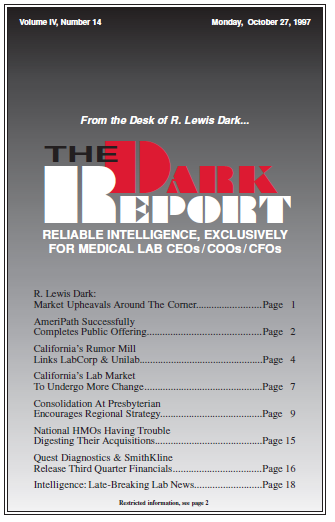CEO SUMMARY: Continued financial pressure on all laboratories operating in California leads some industry observers to believe that Laboratory Corporation of America and Unilab might be considering some kind of deal between the two companies. Senior executives at both laboratories say such talks are nonexistent. FOR ALMOST TWO WEEKS there has been ongoing speculation that …
California’s Rumor Mill Links LabCorp & Unilab Read More »
To access this post, you must purchase The Dark Report.


